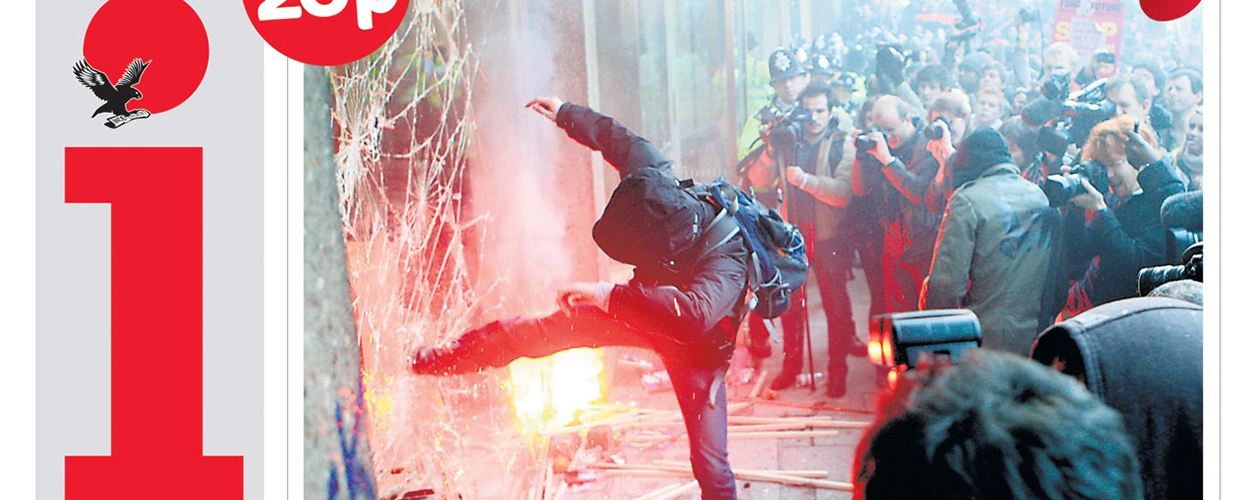This website uses cookies so that we can provide you with the best user experience possible. Cookie information is stored in your browser and performs functions such as recognising you when you return to our website and helping our team to understand which sections of the website you find most interesting and useful.
Business News Deals Media
Independent to go online-only as i sold to Johnston Press
By Chris Cooke | Published on Monday 15 February 2016

The publisher of The Independent confirmed on Friday that the broadsheet will become an online-only newspaper as of next month, with the final print edition expected on 26 Mar.
As previously reported, there was rampant speculation about the future of the paper last week after it emerged that Evgeny Lebedev – whose father bought The Independent in 2010 – was close to selling the broadsheet’s streamlined sister title i to regional newspaper group Johnston Press. i – which was launched the same year as the Lebedevs’ acquisition of The Independent – has been relatively successful in a flagging newspaper market, and was widely assumed to be propping up its sister paper in recent years.
The sale of i to Johnston Press was also confirmed on Friday. The new owner plans to boost the title’s staff and reach, launching it into the Northern Irish market for the first time. A standalone i website will also be launched, because The Independent itself will continue to operate the more youthful i100.co.uk.
i will continue to operate out of the same London offices, which are leased from Daily Mail publisher DMGT, and will also license content from the online Independent and the Lebedevs’ other title, the Evening Standard. As previously noted, although more known for its short-form reporting, i was nevertheless able to provide pretty well researched journalism by tapping into and repurposing content from the main Independent paper.
Back at the Indy, it’s not clear how many redundancies will follow the shift to online-only. For his part, Evgeny Lebedev was trying his best to give a positive spin to the development, portraying his title as a pioneer by dumping print at this stage.
He told staff: “Today the Independent titles announce an historic transition. At a time when our journalism is read and respected by more people in more places than ever before, we are embracing an exclusively digital future with independent.co.uk and its associated sites. We faced a choice: manage the continued decline of print, or convert the digital foundation we’ve built into a sustainable, profitable future”.
In his internal memo, he went on: “In choosing the latter [option], we will create 25 new content roles, launch a new subscription mobile app, enhance the redesigned, thriving independent.co.uk, open new editorial bureaux in Europe, the Middle East and Asia, and invest further in our New York-based US operation”.
Arguably the newspaper industry has been waiting for some time for one title to bite the bullet and go online-only, and to test whether a conventional news media brand can retain its credibility and generate enough revenue without a print outlet.
The Guardian and Financial Times were both possible contenders, because of their relatively low print circulations and decent online operations. Though it did seem more likely a title with daily sales below 100,000 would be the first to drop print, which, in the UK, meant The Independent or one of the regional titles, probably one of the Scottish daily broadsheets.
All eyes will now be on Indy HQ to see whether the Lebedevs’ gamble will work. The broadsheet’s owner insists its website, which has around 58 million monthly readers, is already profitable, though it’s not clear what costs have been previously charged to the digital side of the business. And while cutting print saves plenty on production, print and distribution, there are still significant costs involved in creating good journalism.
Online, if anything, there is even more competition for both readers and advertisers. While the all-new Independent clearly has global ambitions, some English-language titles elsewhere in the world are starting to gain traction here too, in particular the New York Times.
Then there’s the existing online-only news media that have a sizable following worldwide, led by BuzzFeed, Huffington Post and Vice, plus the online business, tech and political press that have gained momentum in recent years. And, of course, for news in the UK, there’s the BBC website, which may have been cut back in recent years, but is still popular and pretty prolific.
As for the all-important advertising pound, online media owners face head-on competition from Google and Facebook, which, without the direct overheads of creating new content every day, do their best to bring the going-rate for web and mobile ads down.
Which means you either need phenomenal traffic to make standard ad income pay – which, in turn, tends to lead to analytics-driven editorial – or you go the branded-content route. Both of which can damage the credibility of conventional news brands, especially broadsheets, which possibly makes the pay-wall option attractive, though that too is a risky business.
So, plenty of challenges ahead beyond the short-term trauma of job insecurity at Independent HQ. Though if Lebedev and his team can make this work, even in a modest fashion, plenty of other titles could follow suit.
CMU Insights will be leading a discussion about the future of the media business, for content creators large and small, as part of London’s Convergence festival next month. Click here for more info.





